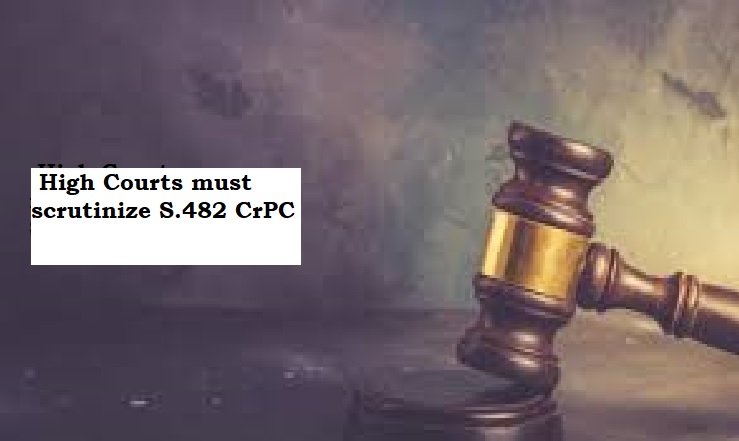


In a recent order, the Supreme Court highlighted the responsibility of the High Courts when invoked under Section 482 of the Criminal Procedure Code (Cr.P.C) to quash criminal cases. The court emphasized that it is essential for the High Court to carefully examine whether the accusations presented are sufficient to constitute the alleged offences against the person accused.
The case involved the Supreme Court overturning a decision by a High Court that had refused to quash criminal proceedings against an accused person. The Supreme Court expressed dissatisfaction with the High Court's ruling, stating that the essential elements required to establish offences under Sections 420, 406, 504, and 506 of the Indian Penal Code (IPC) were not evident against the accused-appellant.
In summary, the appellant-accused had approached the High Court under Section 482 Cr.P.C. seeking the quashing of a criminal case alleging offences under Sections 420 (Cheating and dishonestly inducing delivery of property), 406 (Punishment for criminal breach of trust), 504 (Intentional insult with intent to provoke breach of the peace), and 506 (Punishment for Criminal Intimidation) of the IPC.
The Supreme Court, upon reviewing the material on record and considering the case's facts, remarked that it could not conclusively determine at this stage that no offence had been committed by the applicant. The court emphasized that the arguments presented at the bar related to disputed questions of fact that required evidence and could not be adjudicated under Section 482 Cr.P.C.
The court noted that no civil proceedings had been initiated against the appellant by the second respondent or the relevant parties. Despite the appellant raising contentions regarding this matter, the second respondent chose not to appear and contest the case.
Additionally, the court scrutinized the First Information Report (FIR) and the subsequently filed charge sheet. It concluded that the necessary ingredients to establish the offences under Sections 420, 406, 504, and 506 of the IPC were not evident. The court criticized the High Court for not addressing this crucial aspect in its order, emphasizing that when the High Court is called upon to exercise power under Section 482 Cr.P.C, it is obligatory to assess whether the allegations would indeed constitute the alleged offences against the appellant.
The Supreme Court's ruling underscored the importance of a thorough examination of the merits of the case at the Section 482 stage, ensuring that the accusations are substantial enough to warrant the continuation of criminal proceedings. The court's dissatisfaction with the High Court's order centered on the omission of this crucial assessment, reinforcing the need for a meticulous review of the allegations before deciding on the quashing of criminal cases.
TAGS: Supreme Court Section 482 Cr.P.C High Court quashing criminal proceedings accused Indian Penal Code